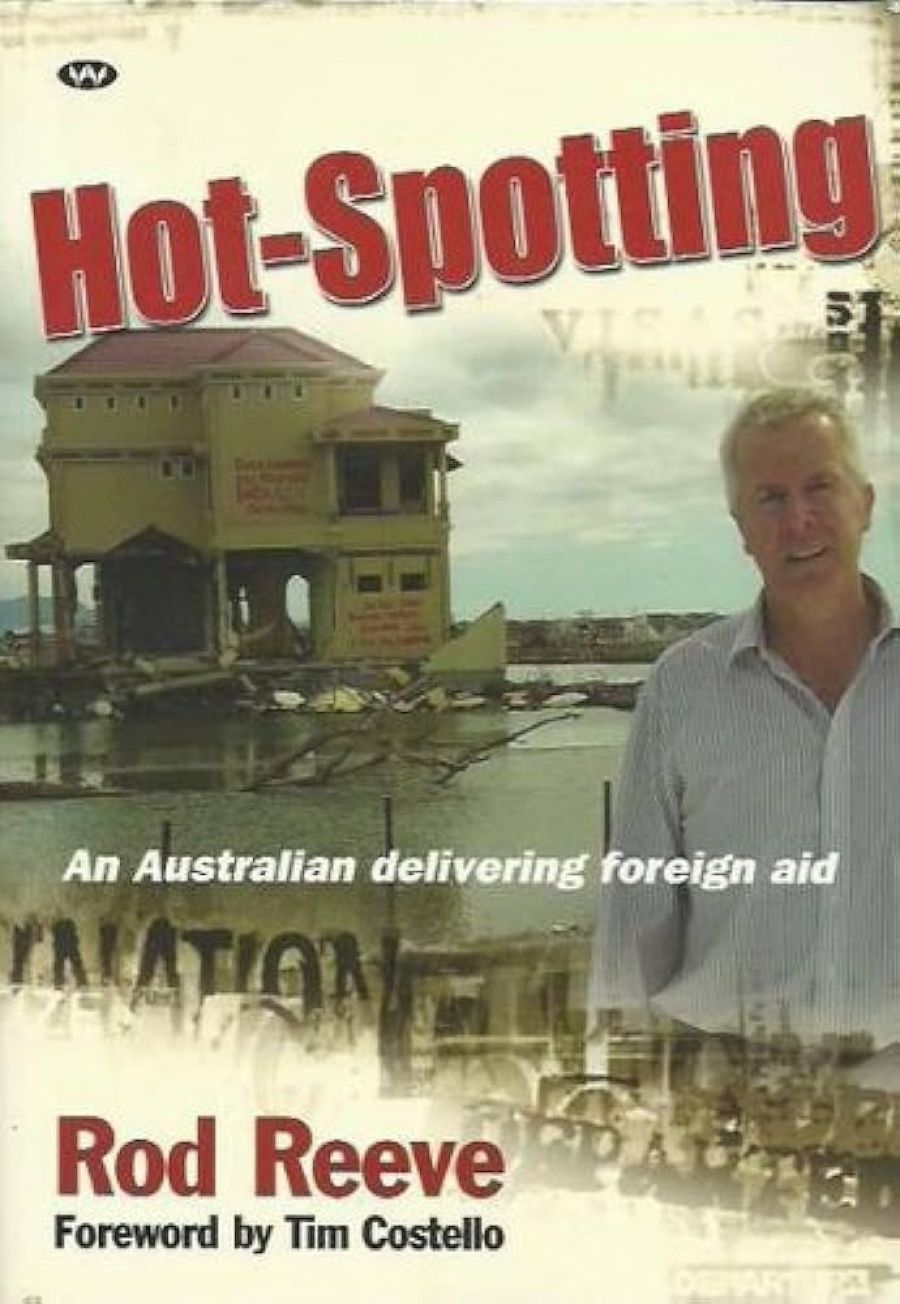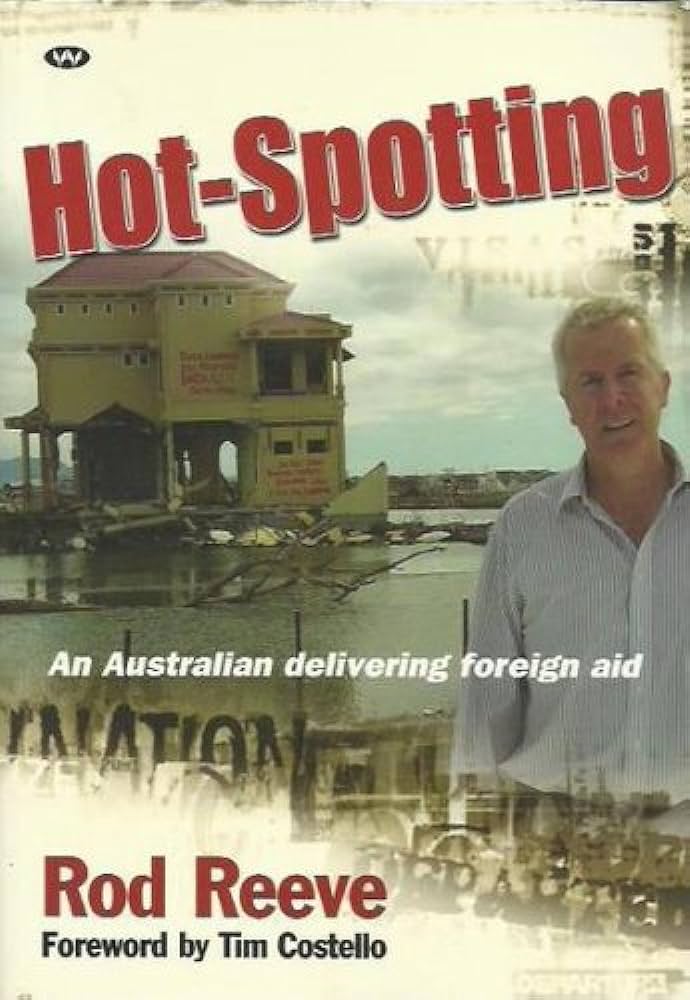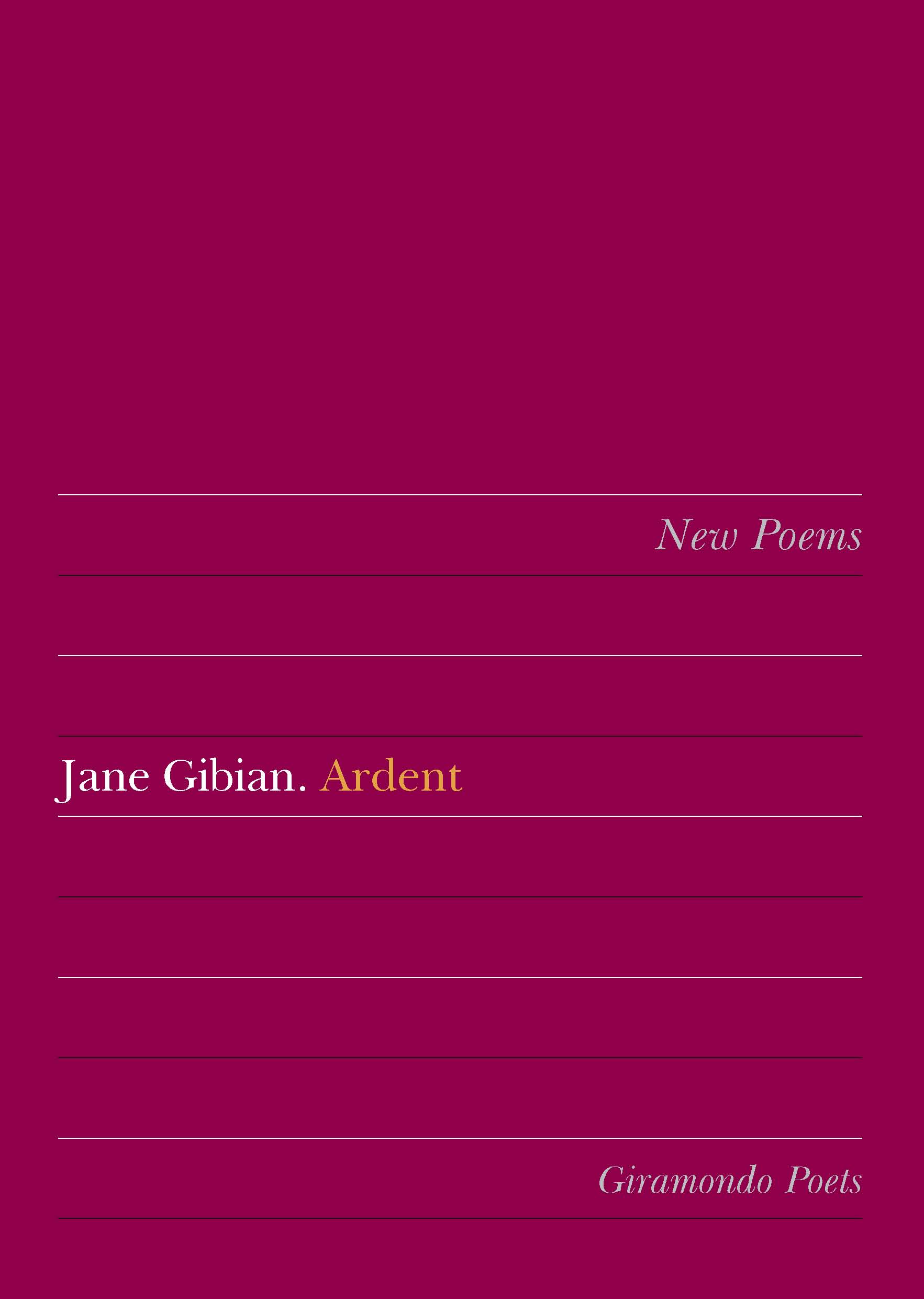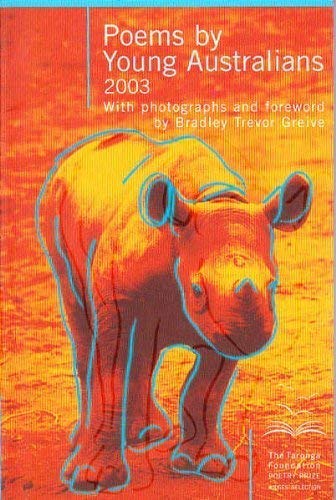
- Free Article: No
- Contents Category: Non-fiction
- Custom Article Title: Three non-fiction books
- Review Article: Yes
- Article Title: Three non-fiction books
- Online Only: No
- Custom Highlight Text:
Rod Reeve manages a company that directs foreign-aid projects. Rather than flying in with helicopter-loads of rice, he focuses on ‘capacity-building’ and infrastructure. Agricultural science is his own speciality, but he has set up and run a variety of projects. He has worked to counter opium production in Pakistan, develop dryland farming in Africa, Iraq and Jordan (he had to evacuate during the 1991 Gulf War), and improve health and education in China, Laos and Indonesia. He assisted with the quarantine service in Papua New Huinea and post-tsunami reconstruction in Aceh.
- Book 1 Title: Hot-spotting
- Book 1 Subtitle: An Australian delivering foreign aid
- Book 1 Biblio: Wakefield, $29.95 pb, 310 pp
- Book 1 Cover Small (400 x 600):

- Book 1 Cover (800 x 1200):

- Book 2 Title: Ardent
- Book 2 Biblio: Giramondo, $22 pb, 86 pp
- Book 2 Cover Small (400 x 600):

- Book 2 Cover (800 x 1200):

- Book 3 Title: Poems by Young Australians Vol. 5
- Book 3 Biblio: Random House, $16.95 pb, 114 pp
- Book 3 Cover Small (400 x 600):

- Book 3 Cover (800 x 1200):

It is logical that there are private companies such as this, ready to respond to wars and disasters, but also to work in obscure places (such as Flores and the mouth of the Fly River in Papua New Guinea) to carry out the work the government has undertaken for underdeveloped countries. Reeve is, I suppose, one of the maligned contractors who moved into Iraq on the heels of the American invasion. However, the work is difficult and often dangerous, and he has had occasion to ask himself, ‘What the hell am I doing this job for?’ There are certainly easier ways of making a buck. Idealism, if not naïveté, seems required, and he is determinedly apolitical, whether working under Saddam Hussein or the ‘Coalition of the Willing’.
Hot-Spotting is full of interesting information, but sometimes frustrates one’s curiosity. On Flores, efforts to improve maternal health encountered resistance from the traditional midwives: ‘They spoke loudly and gesticulated aggressively. One hissed at the government health worker.’ The narrative then broadens out immediately into generalities, but a vivid image of the hissing midwife lingers, and I wanted to know how she was mollified, since community consultation is essential for these projects. Despite such minor quibbles, Hot-Spotting is a likeable and competently-written book about an important but little-known subject.
Many of the poems in Ardent concern pleasurable contradictions of language and culture, in contexts of dailiness and transience – often with a comedic touch. ‘Parts of the Tongue’ describes a courtship, with the delicately erotic ‘his casual touch / was six light insect / feet on your forearm’, and a satire on the fantasy of suburban glamour. ‘In the magazine you read about / the ten sexiest women / for April; they all live / in suburbs beginning with W / and wear impossible shoes.’ Marriage and the move to a ‘newly-invented suburb beginning with X’ have a taming and transforming effect: his hand becomes ‘refined under its wedding ring’, and her tongue calmly forks into four. ‘/ one part for being good natures / one for lamentation / the third part of irony / and the last for an imaginary language’. The dark wit of this deftly packed poem is also evident in ‘Carp’ and in the travel poems, ‘The Journey Might Begin’, ‘diskspace / your heart’, and ‘Leaf and Letter’ ‘Do Not Detach This Clip’ is one of several elegant pantoums. ‘Unfolding’ has a sensual and haunting strangeness. And the sequence ‘Vietnam Haiku’ focuses Gibian’s gift for fresh and surprising images.
Gibian is an accomplished poet; why, then, has she included a number of poems that are coy and beginnerish? (‘Almost Shy’, ‘Doorway’ and ‘Suspended’ are among these.) Her style also becomes oddly forced and mannered in ‘Gesture’ and ‘Continuity’, which includes such self-indulgent lines as ‘the hypnotic taste of a handstand in the mouth’. These two poems use ‘emptiness’, ‘absence’ and ‘salvation,/ which you don’t even believe’ in a way that seems more a dutiful nod towards fashionable negative theology than genuine engagement. These roomy concepts needed to be opened up and explored, and should have been, perhaps with some of the irony and inventiveness that liberates Gibian (and her readers) elsewhere in the book.
There is often something unguarded, and thus often deeply moving, about poems written by young people. This quality is sometimes absent in the more considered, structured and self-conscious writing of adults. Young people tend to see the world through unformulated eyes, and this enables them to make unusual connections and fresh observations. The poems in Poems by Young Australians deliver in this regard. This inspirational and eclectic collection showcases a selection of winning and commended entries in the 2007 Taronga Foundation Poetry Prize.
The young poets, who range in ages from eight to nineteen, bring honesty, passion and an at times uncanny understanding to their responses to and representations of the world. This articulate and intelligent group of young Australians obviously cares deeply about not only their environment, and the animals and people who inhabit it, but also about words and ideas. Their poems cover a wide range of subjects, from drought, conservation and sustainability, to refugees, the Stolen Generations and death. Some take an intellectual approach, such as Ya Szu Chang’s very clever ‘Praying Manti’', while others have a lighter touch, such as Miranda Allender’s ’10 Delectable Chocolates’. Others give a serious subject like extinction an unusual twist, as in Courtney Landers’s ‘Word Extinction’. These young poets deal skilfully with the rhythms, rhymes, structures and even the physical format of the poetic form. They also stretch both their own and the reader’s vocabulary, dipping into dictionaries and thesauruses to emerge with resplendent words not usually found in the Newspeak of SMS and email.
This collection offers inspiration for other young writer and hope for adult readers. When eleven-year-old Veronica Sebesfi can write a poem such as ‘Sorry’ and move the reader to tears, you know that the future of Australian Literature is in safe hands.


Comments powered by CComment